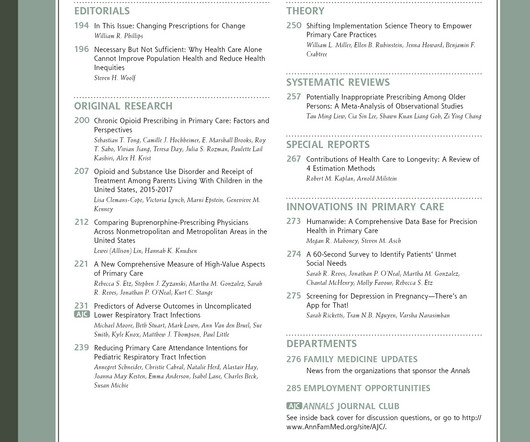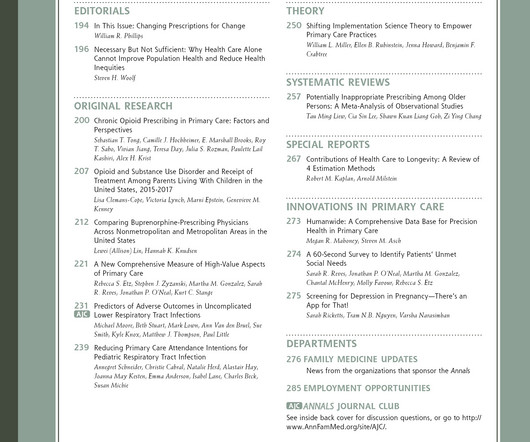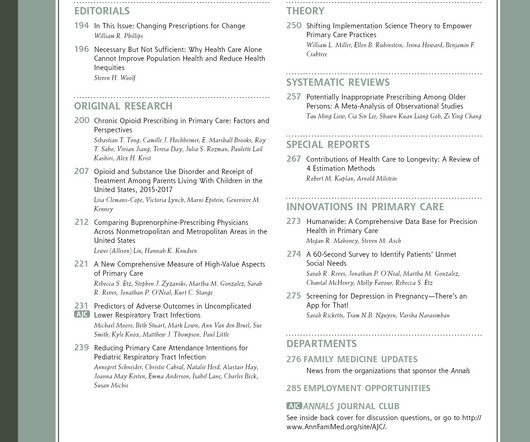Patient Perceptions of a Lifestyle Medicine Clinic in Southwest Virginia [Mixed methods research]
Annals of Family Medicine
NOVEMBER 20, 2024
Context Lifestyle Medicine (LM) is an evidence-based approach to prevention and treatment of chronic disease by addressing six pillars: physical activity, nutrition, sleep and stress management (recovery), connection, and substance use. Objective To assess patient perceptions of a primary care-based LM clinic.













Let's personalize your content